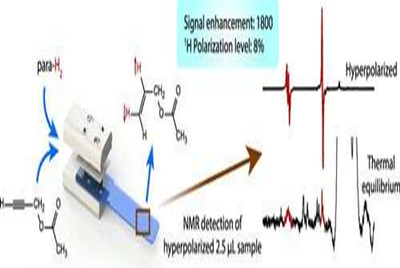
Research by the University of Southampton into a new way of testing drugs could significantly reduce the need for laboratory animals.
Professor Marcel Utz, Head of Magnetic Resonance at the University's Chemistry Department, is leading research into culturing small samples of liver tissues that can be observed by Nuclear Magnetic Resonance (NMR).
Historically, NMR has required relatively large tissue samples making it difficult for scientists to study individual cells or natural products. However, Professor Utz and his team have recently developed miniaturised and highly efficient NMR detectors that enable drugs to be tested and diseases to be studied in small samples in vitro.
NMR provides scientists with detailed information on the structure and behaviour of molecules, allowing them to study live cells, animal and humans.
Marcel, Head of Magnetic Resonance, said: "Our team has succeeded in using an effect based on fundamental laws of quantum mechanics to efficiently align the spins of the hydrogen nuclei in a sample. This near perfect alignment leads to a massive boost in the NMR signal.
"Conventional NMR uses simple glass tubes to hold the sample, whereas our detectors can accommodate an entire miniaturised chemical reactor—lab-on-a-chip—making it possible to achieve hyperpolarisation inside the detector, and observe it with unprecedented sensitivity.
"This is enabling us to culture small samples of liver tissue and use NMR to observe their metabolism. By being able to monitor the reaction of samples at this miniature level, we will be able to test drugs and study disease in vitro, thereby drastically reducing the need for testing on laboratory animals."
The research has been published in the Journal of the American Chemical Society. The detector and lab-on-a-chip technology were developed as part of the European Horizon 2020 project that is revolutionising tissue culture with NMR by providing alternatives to animal testing.

